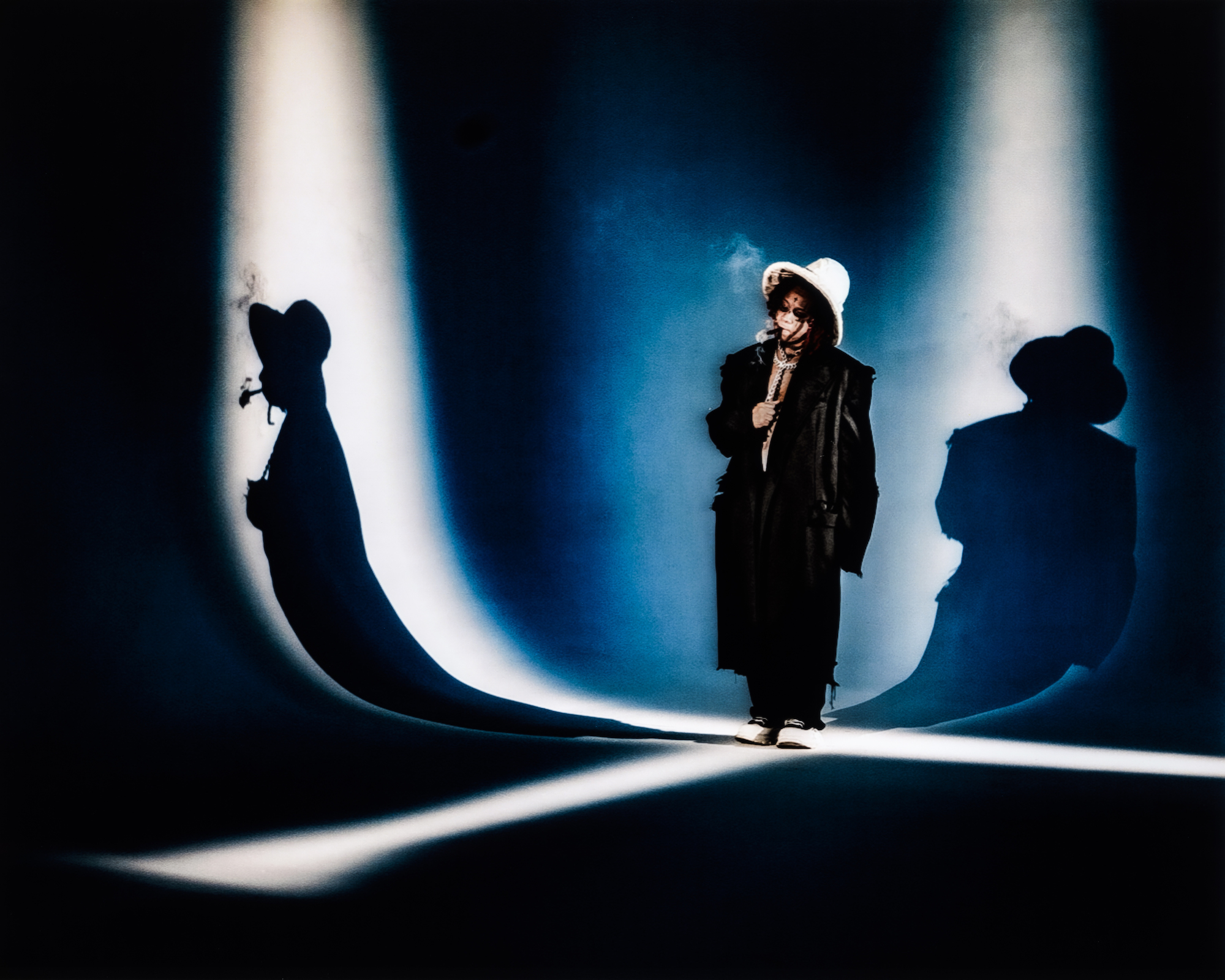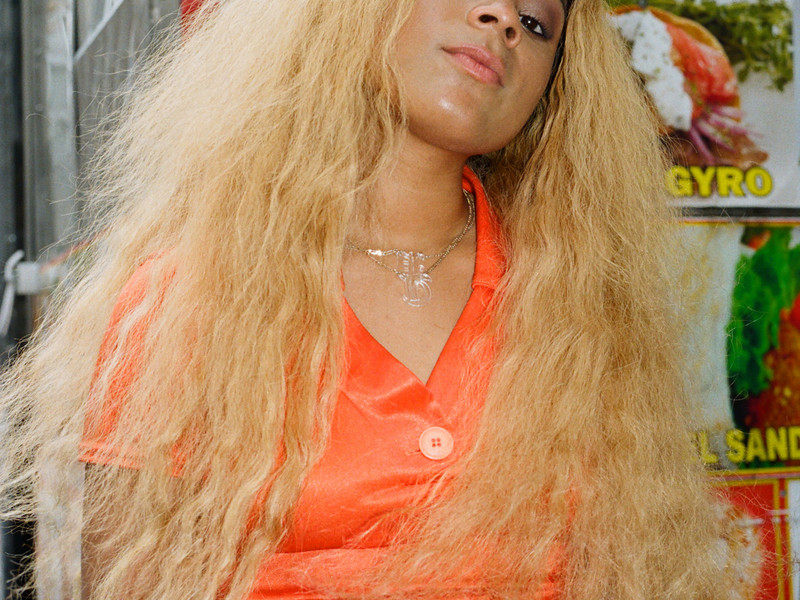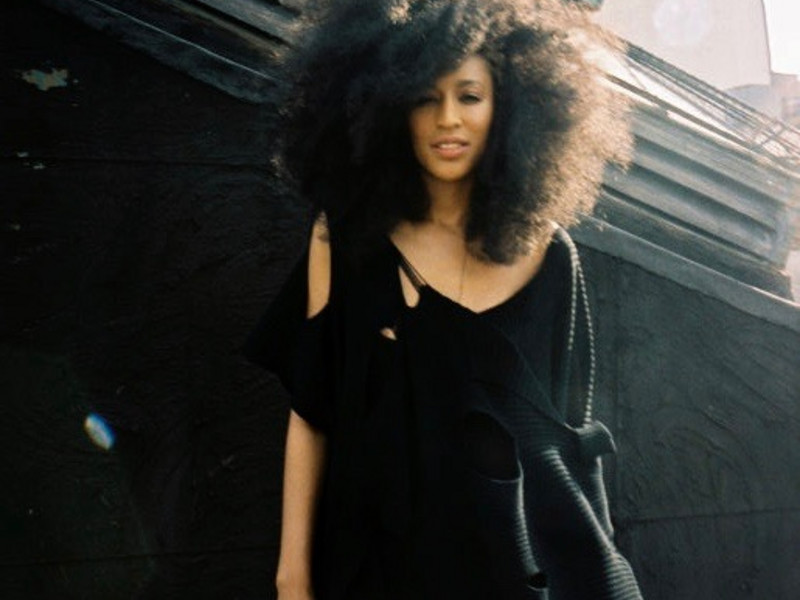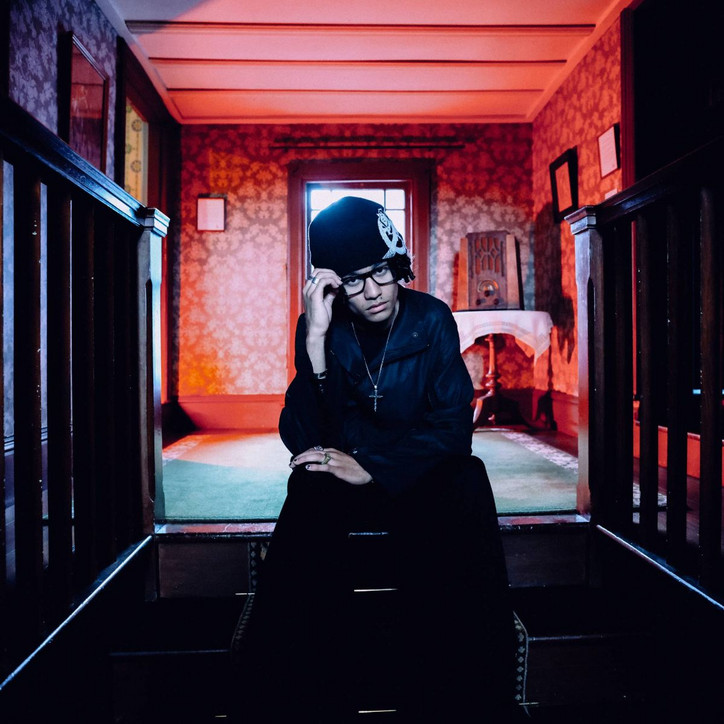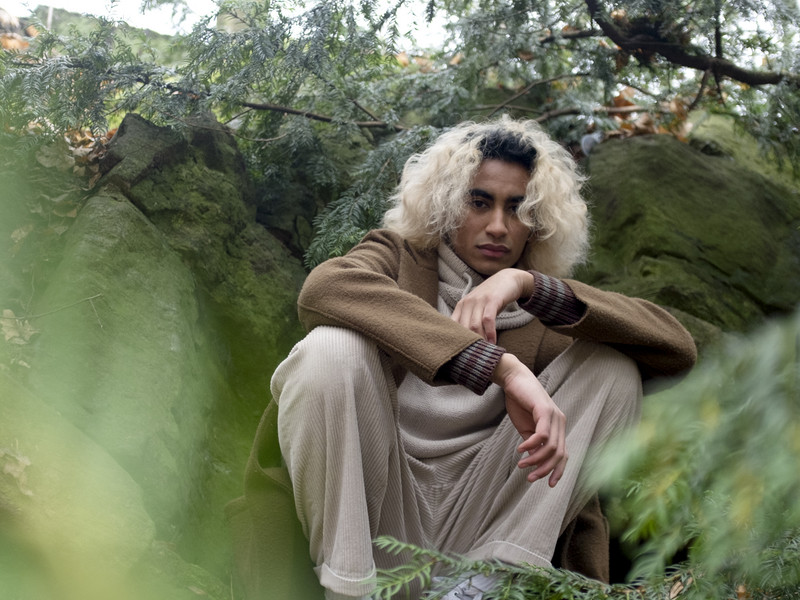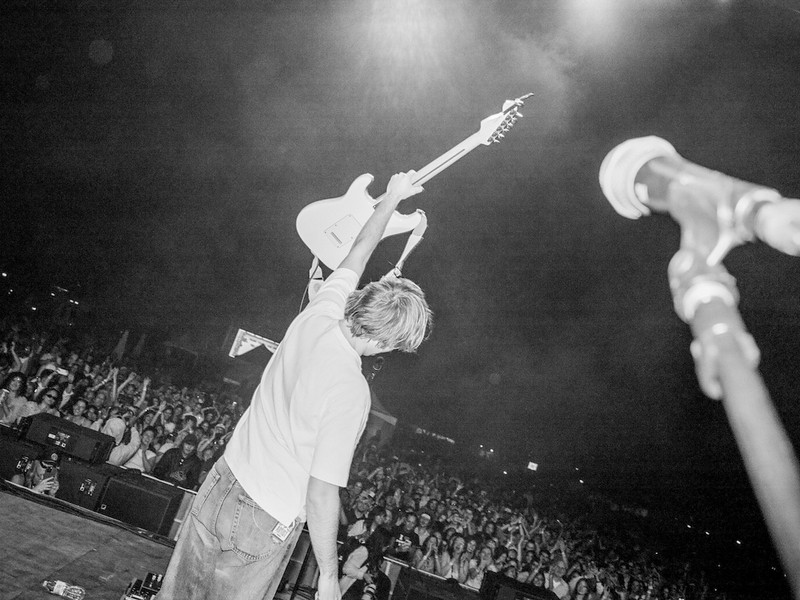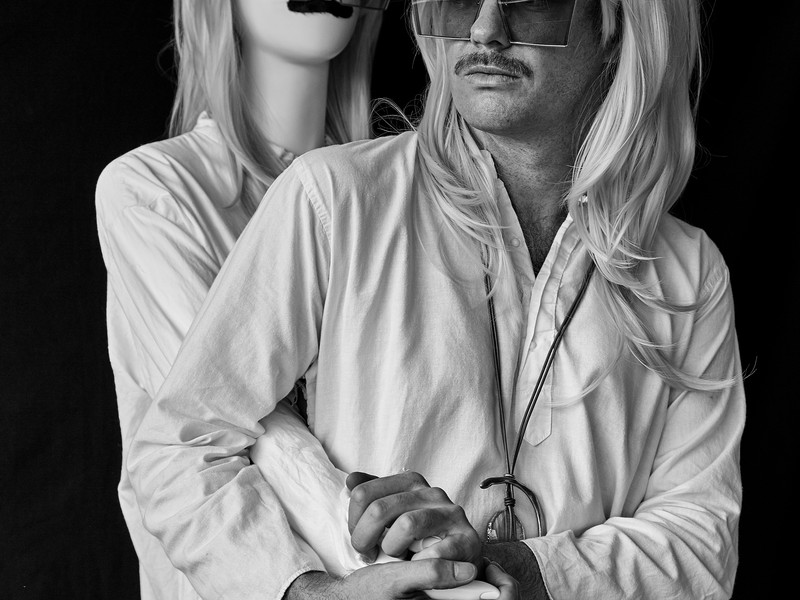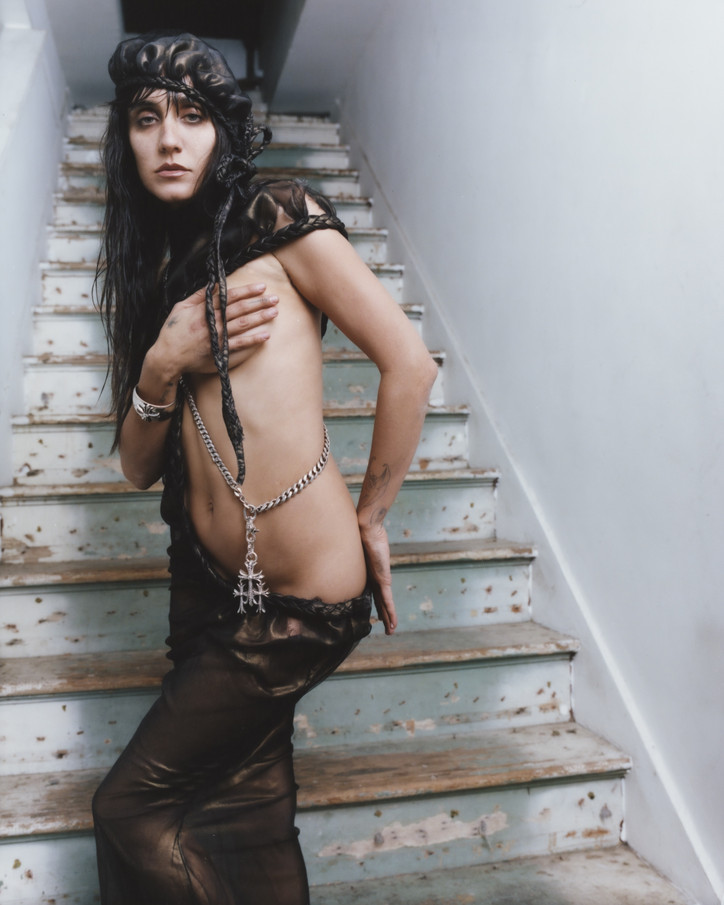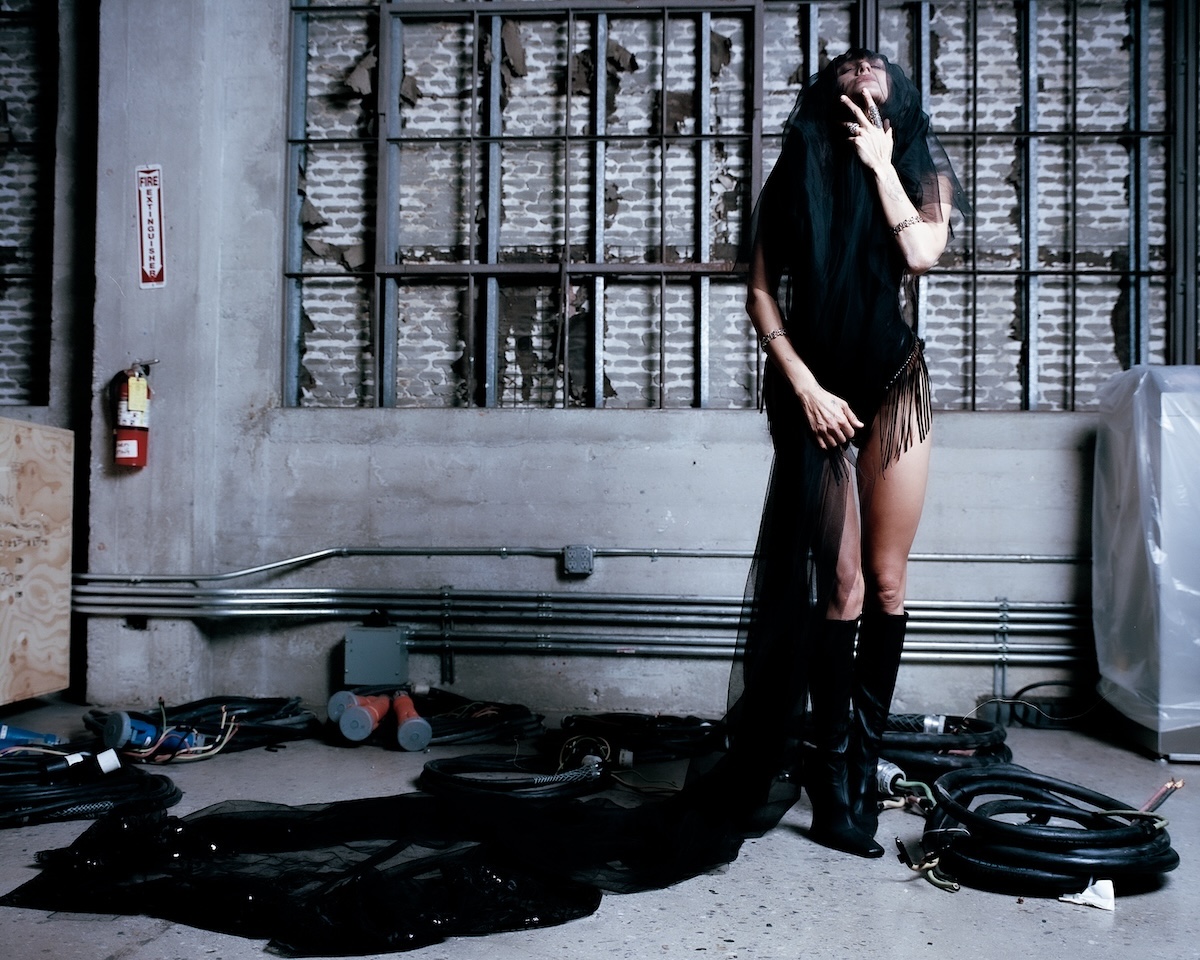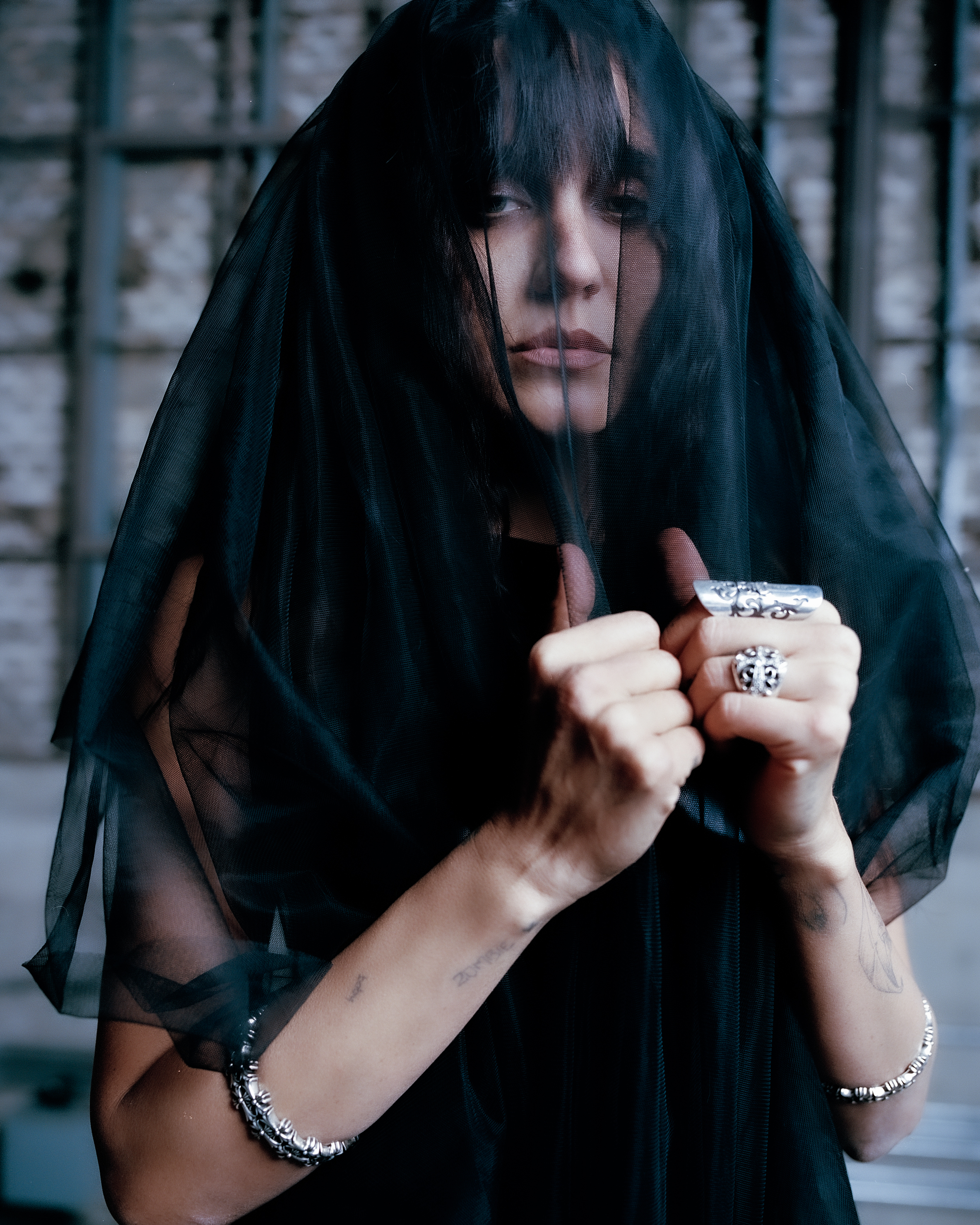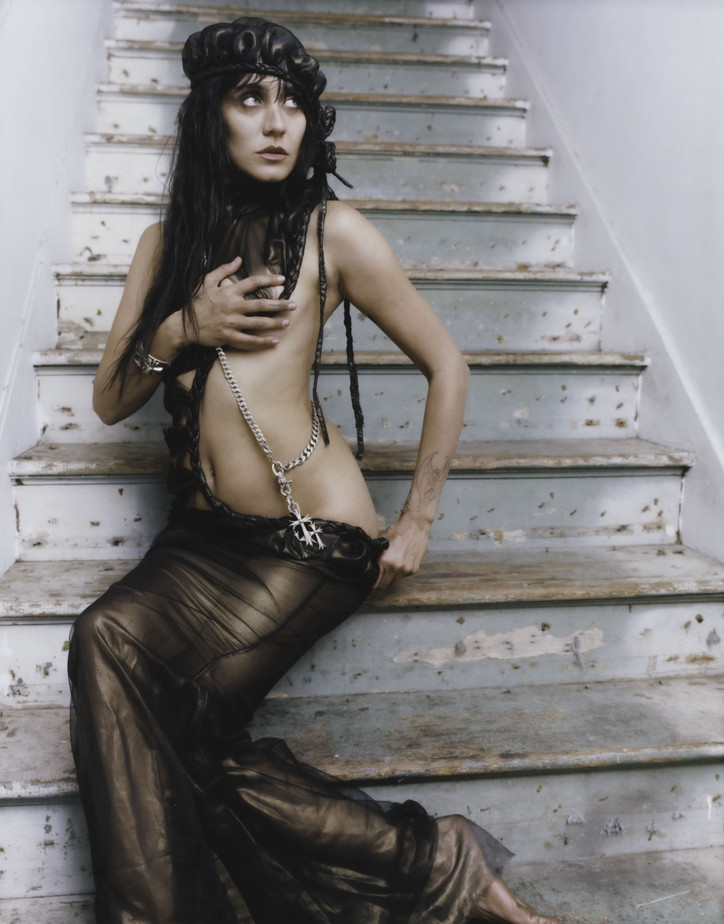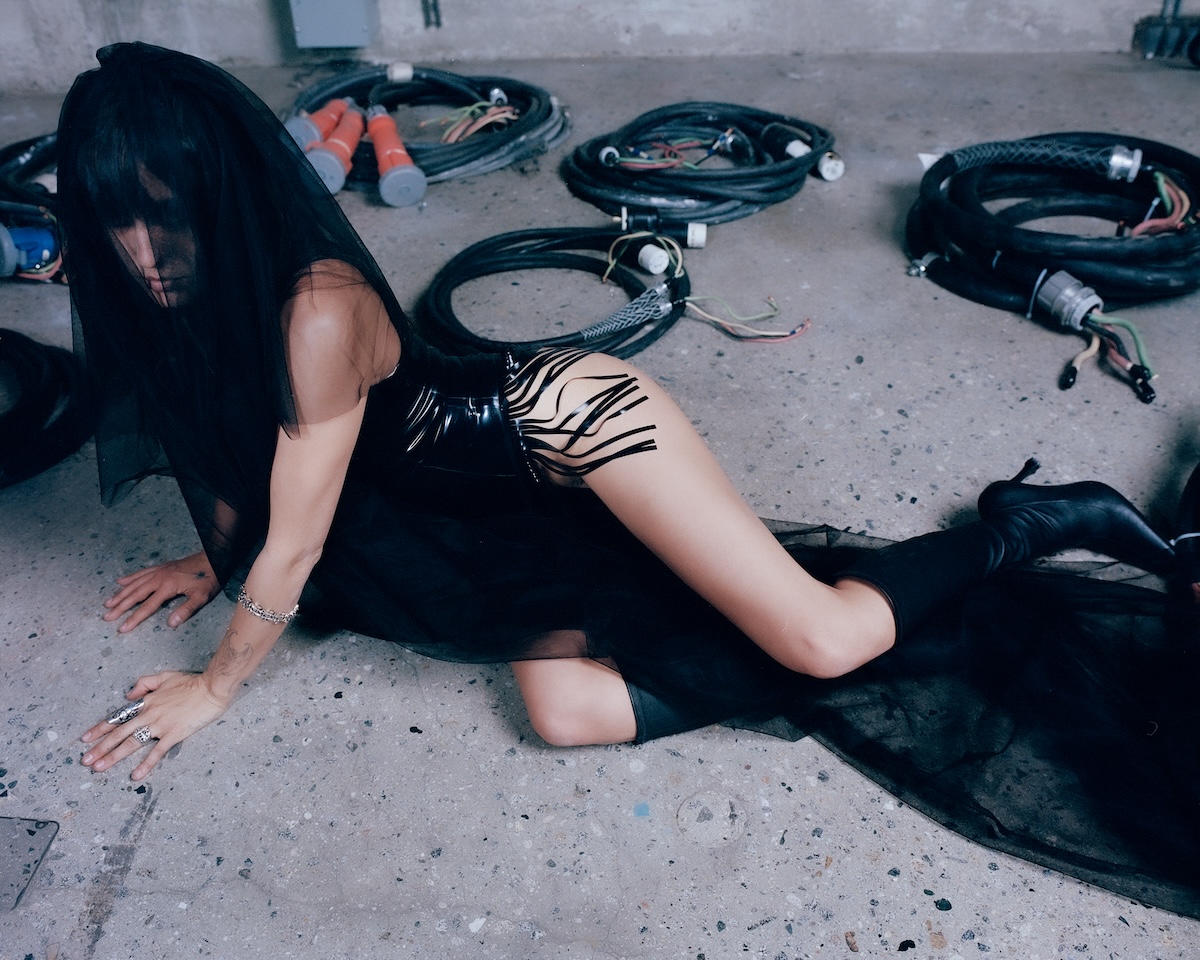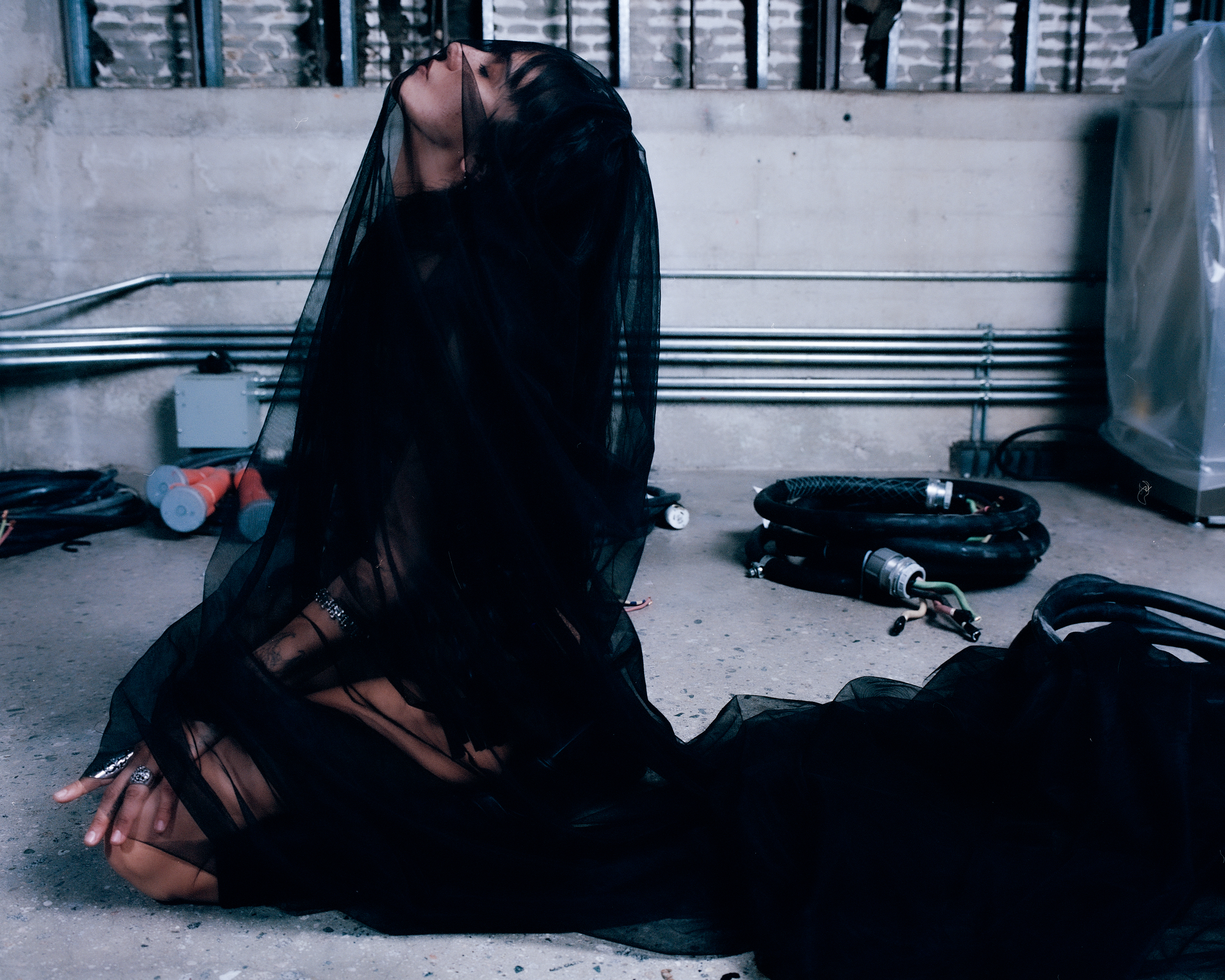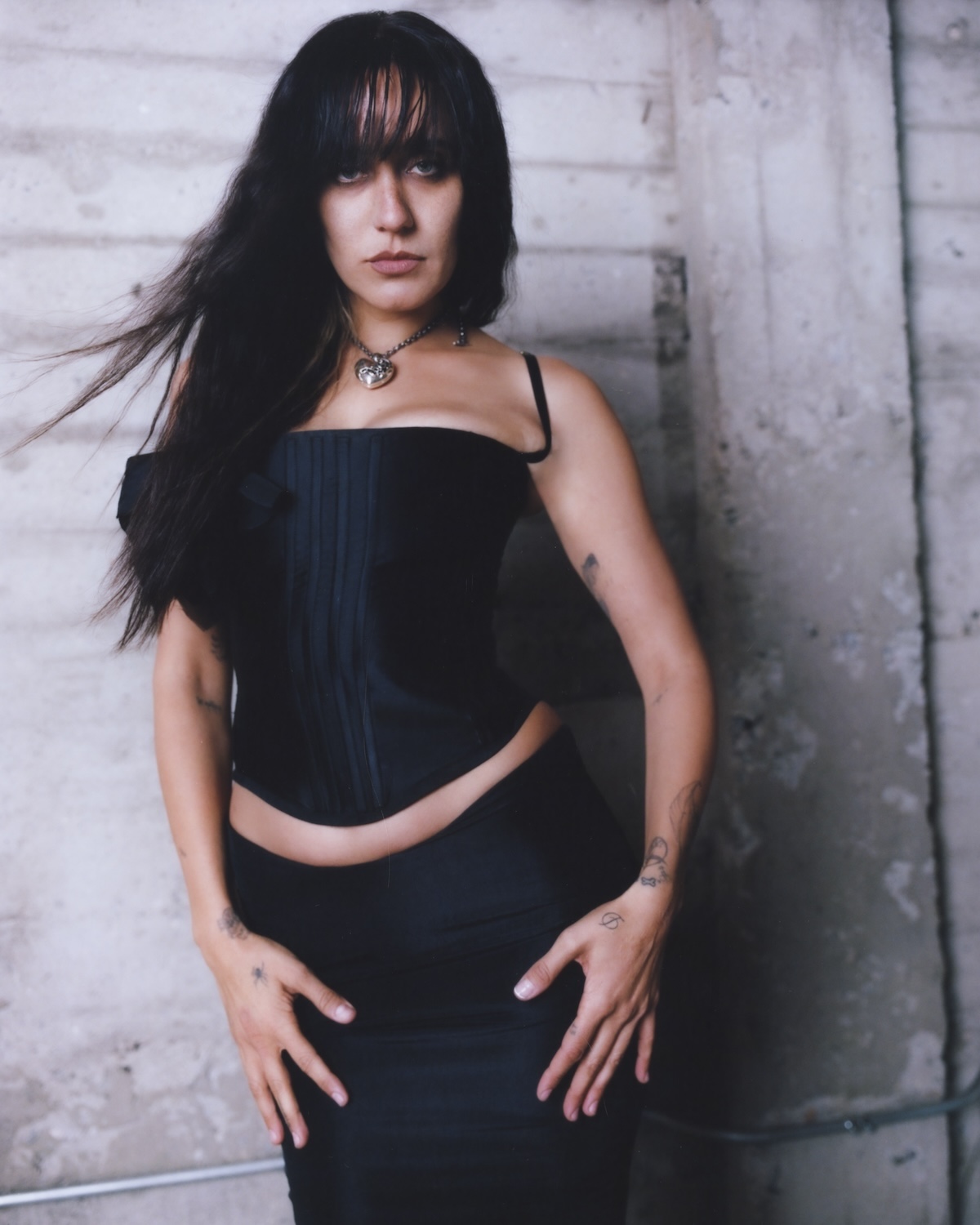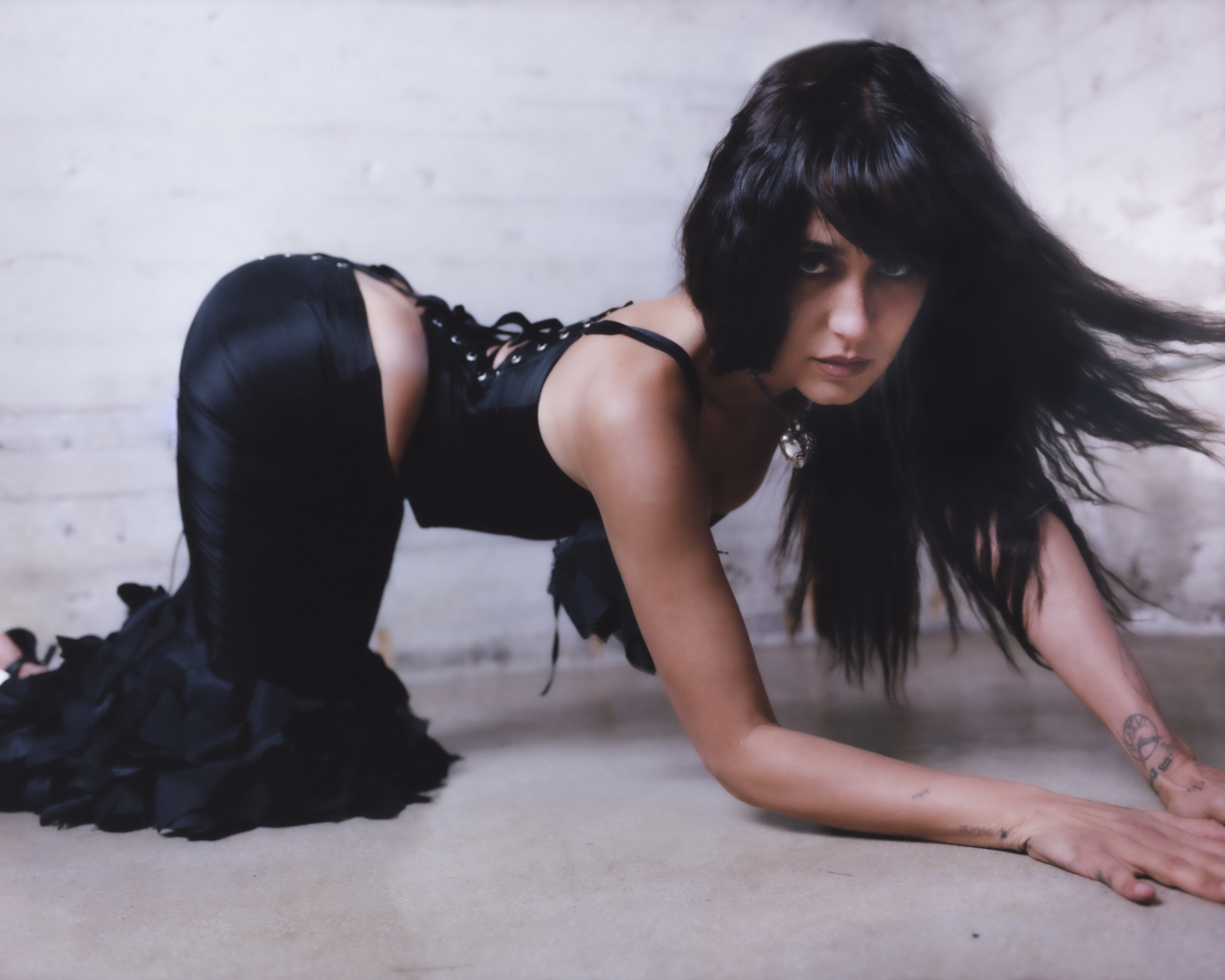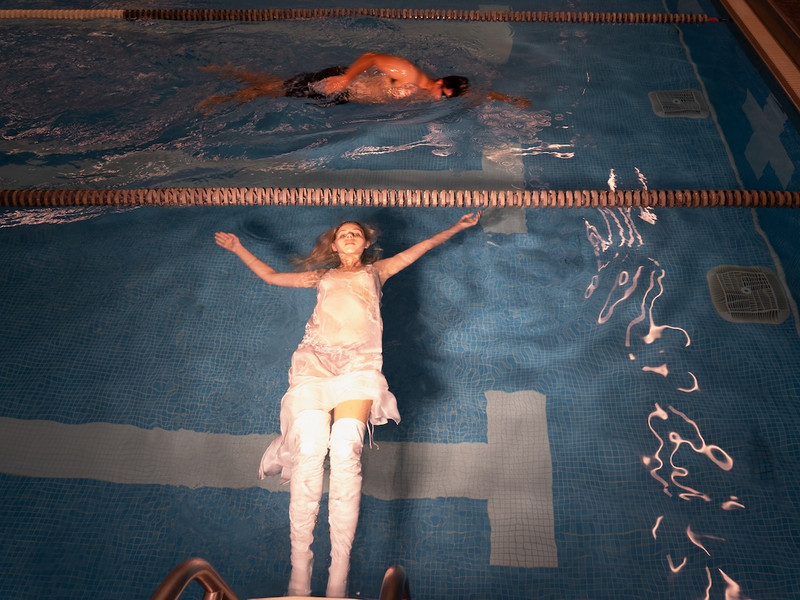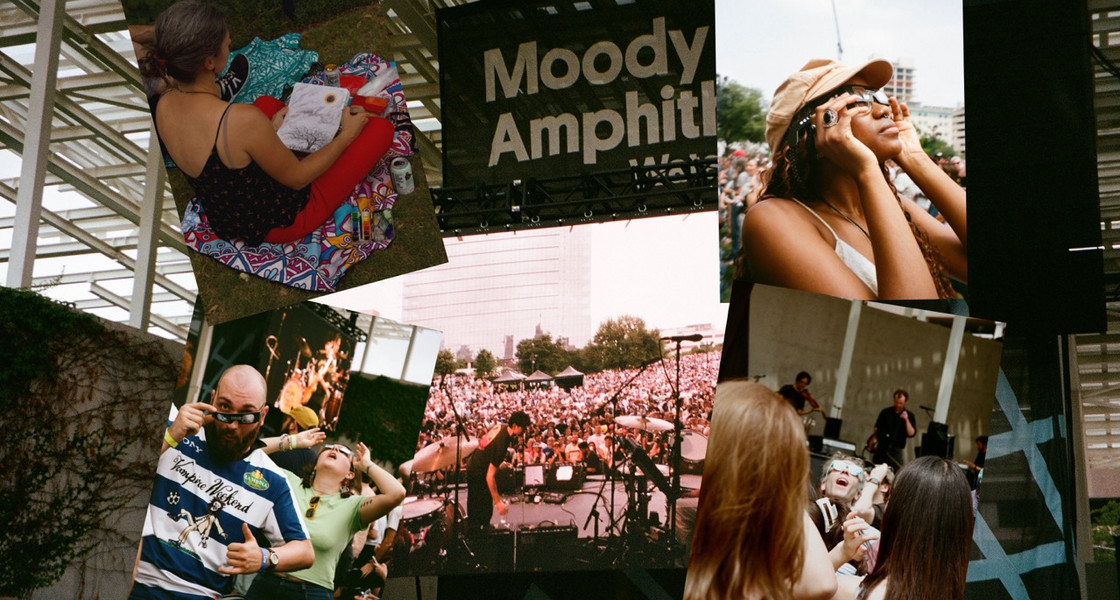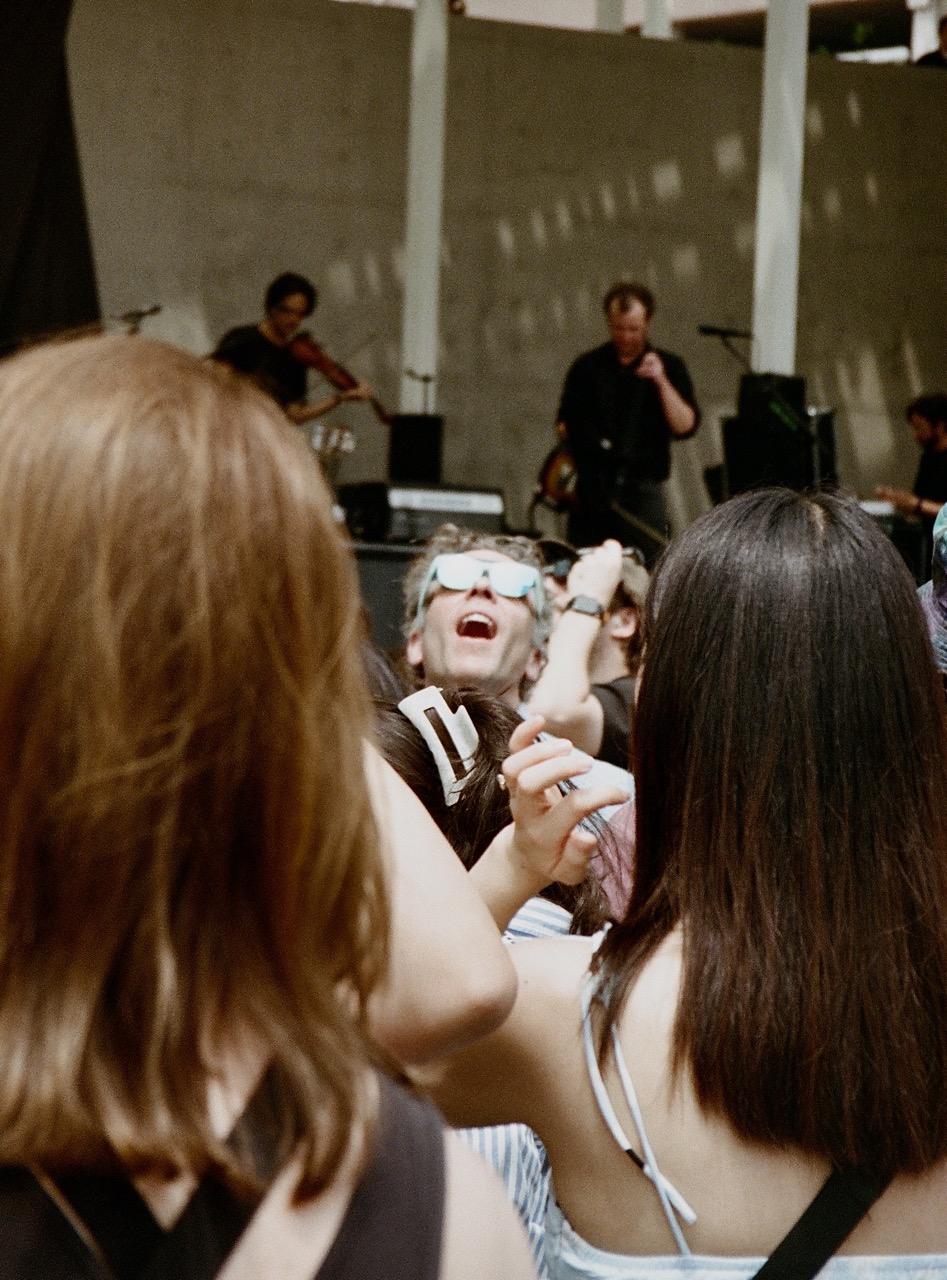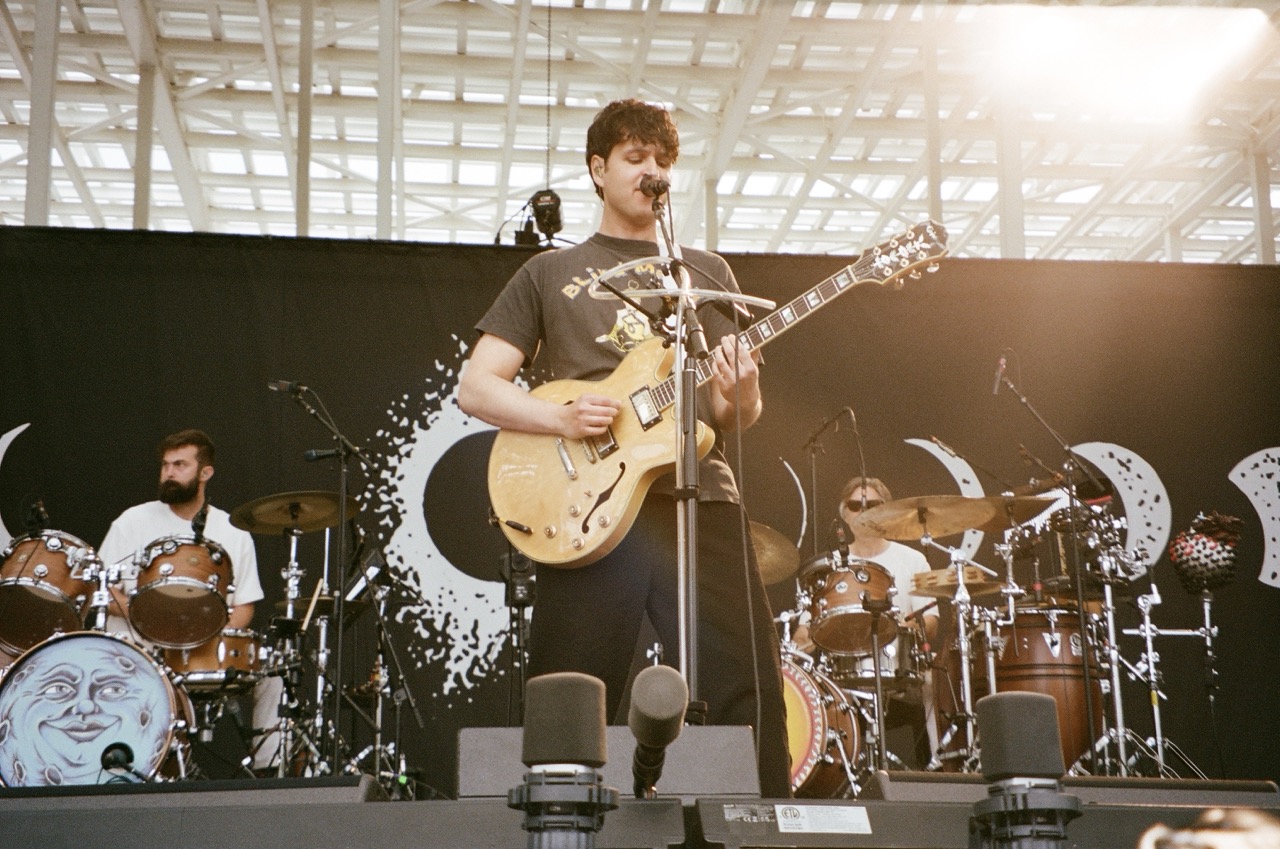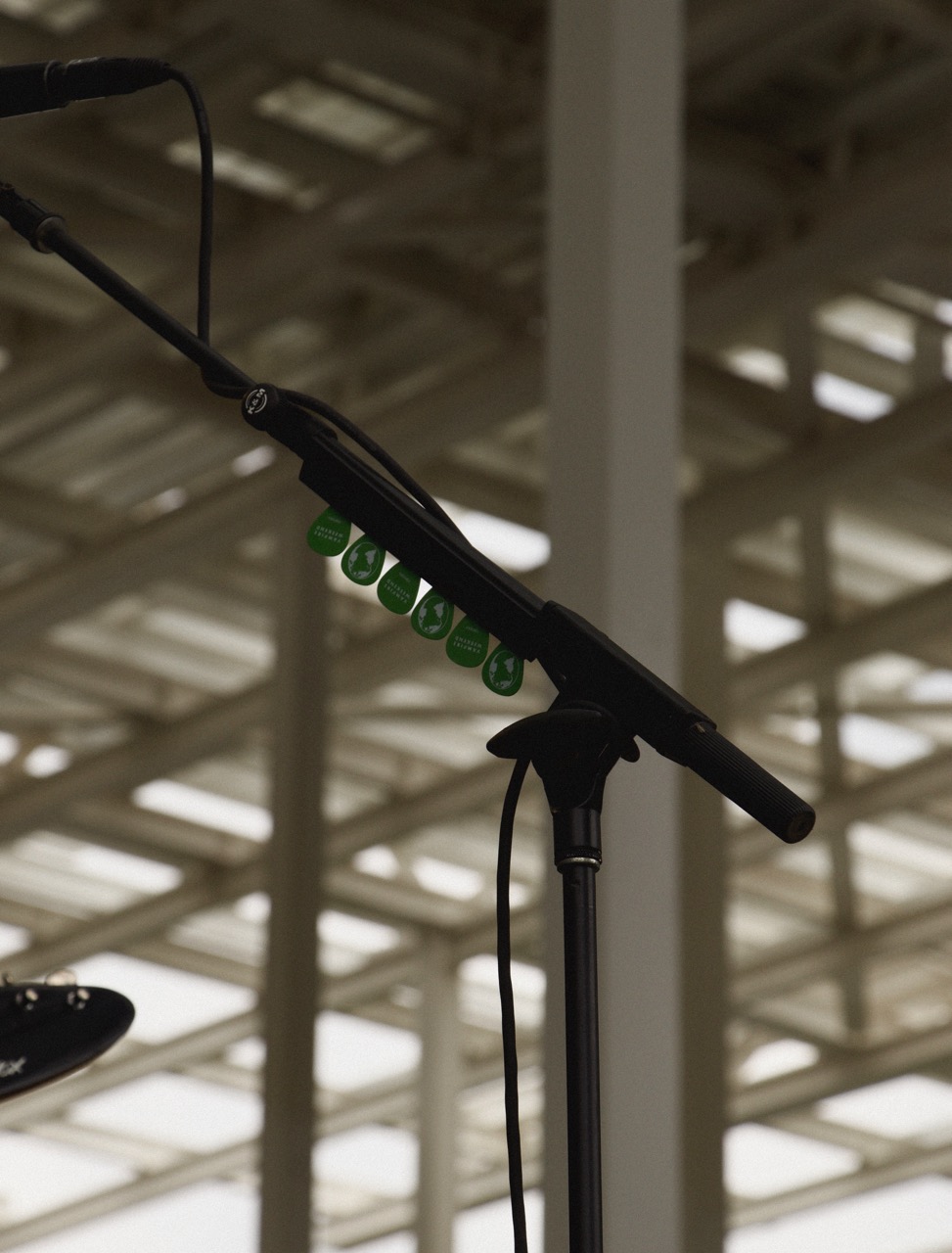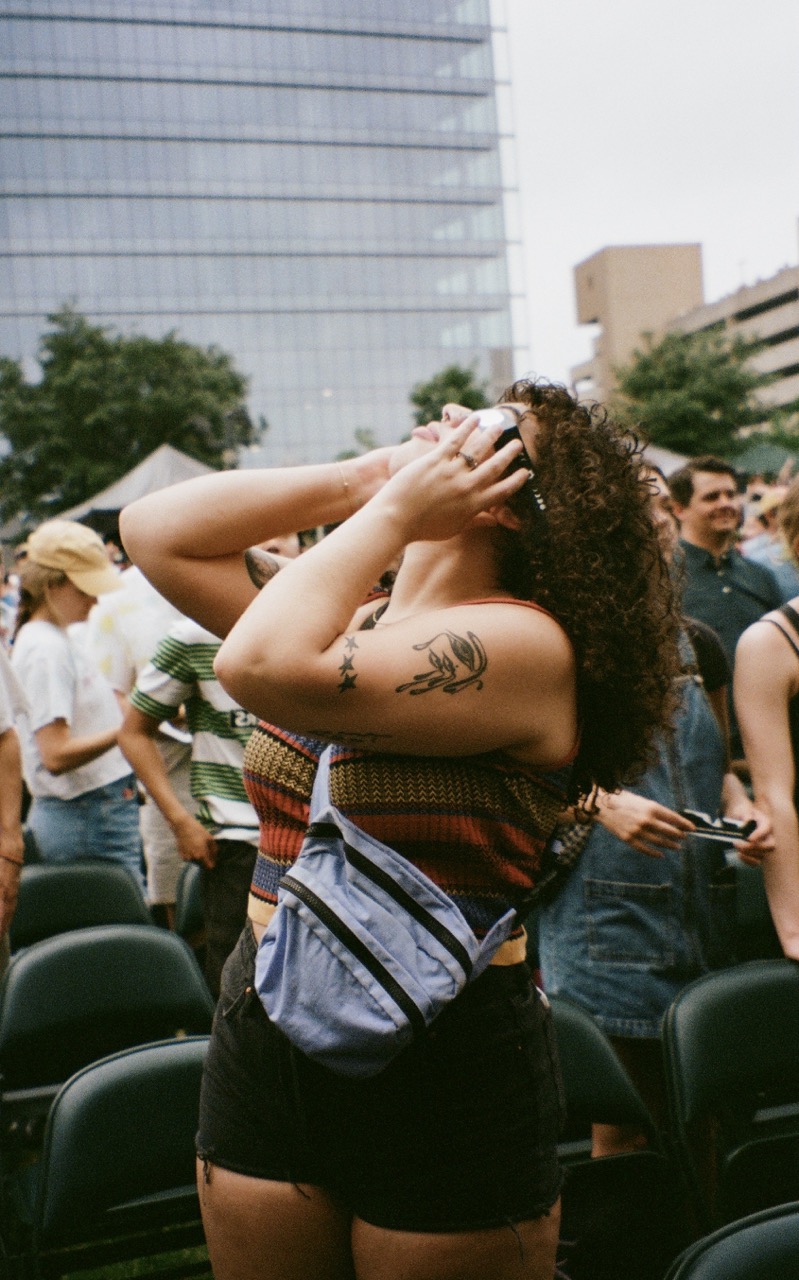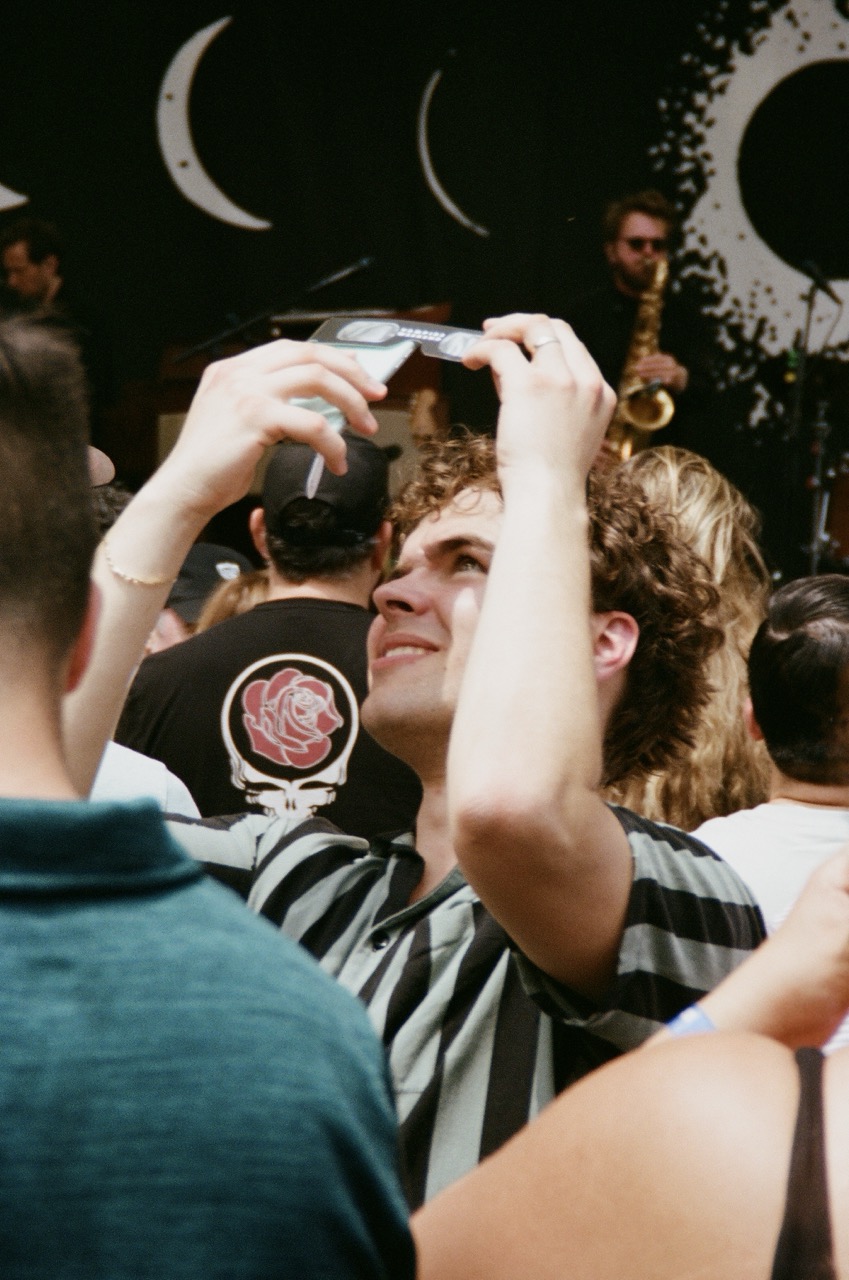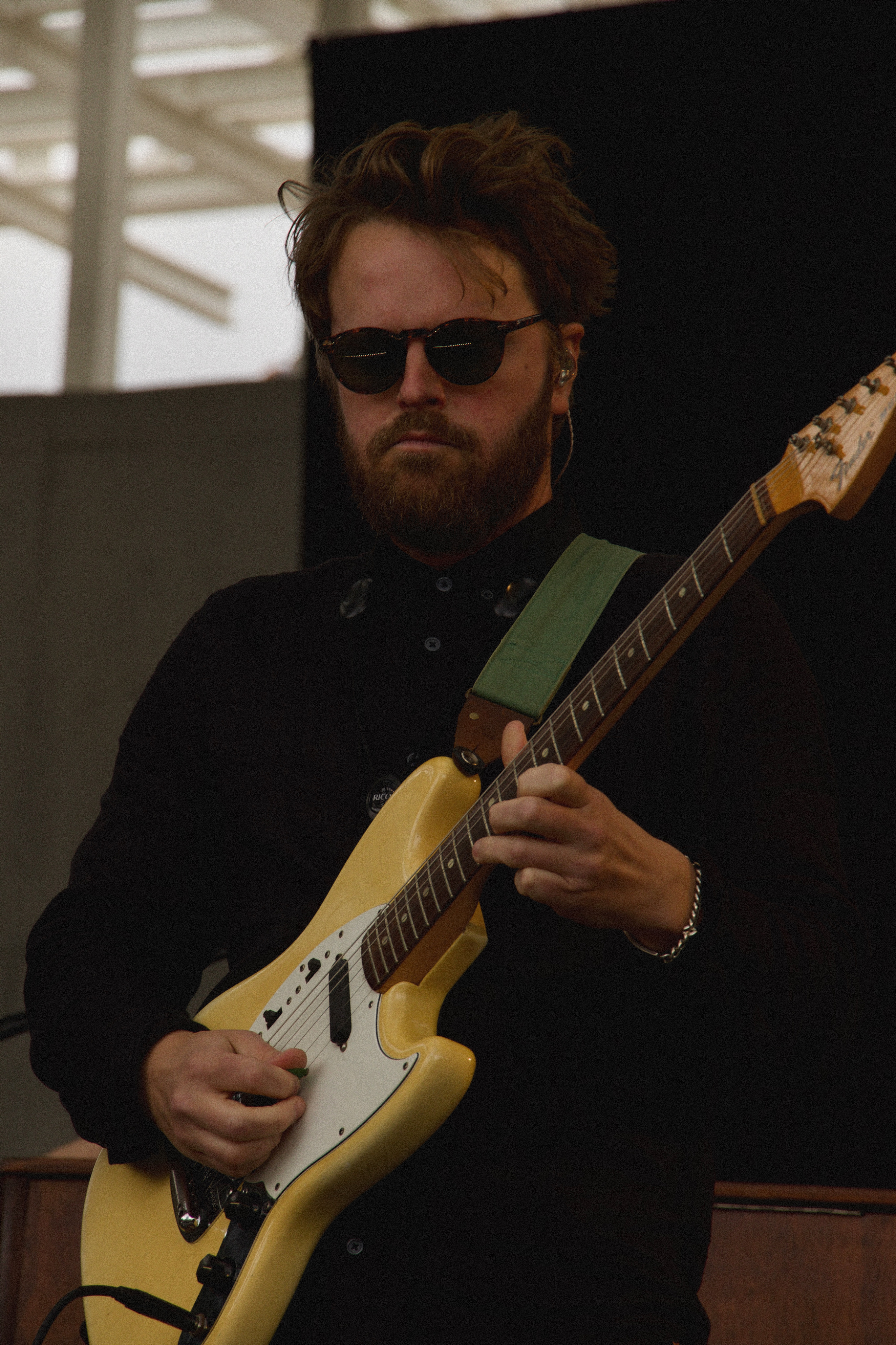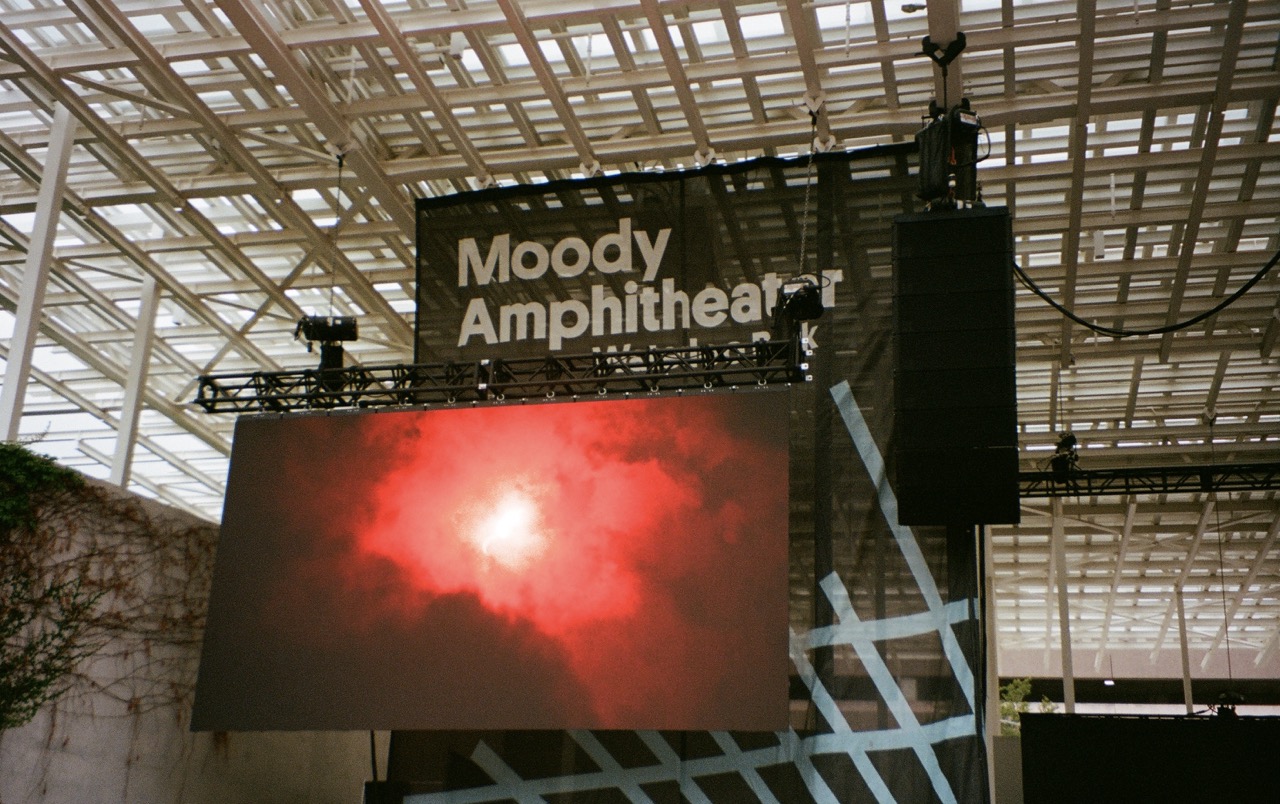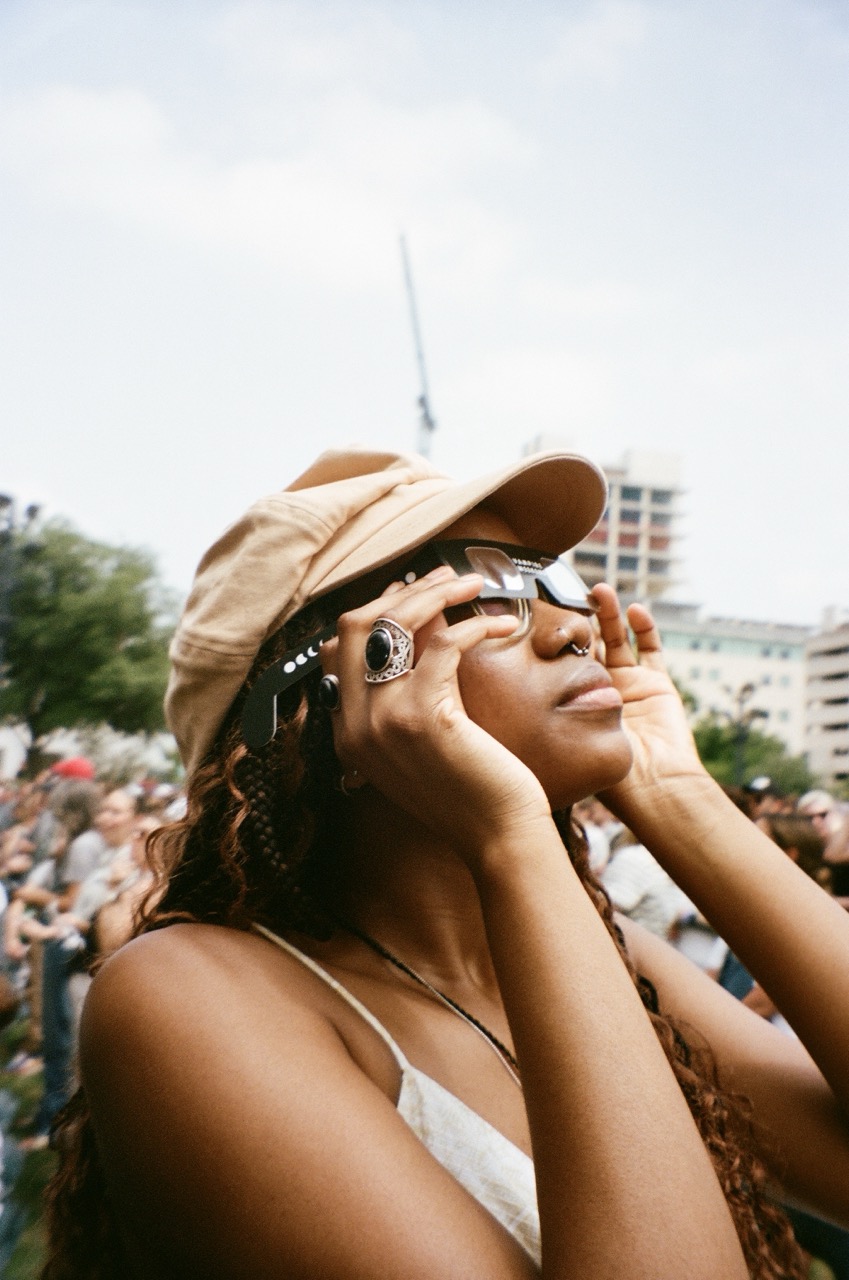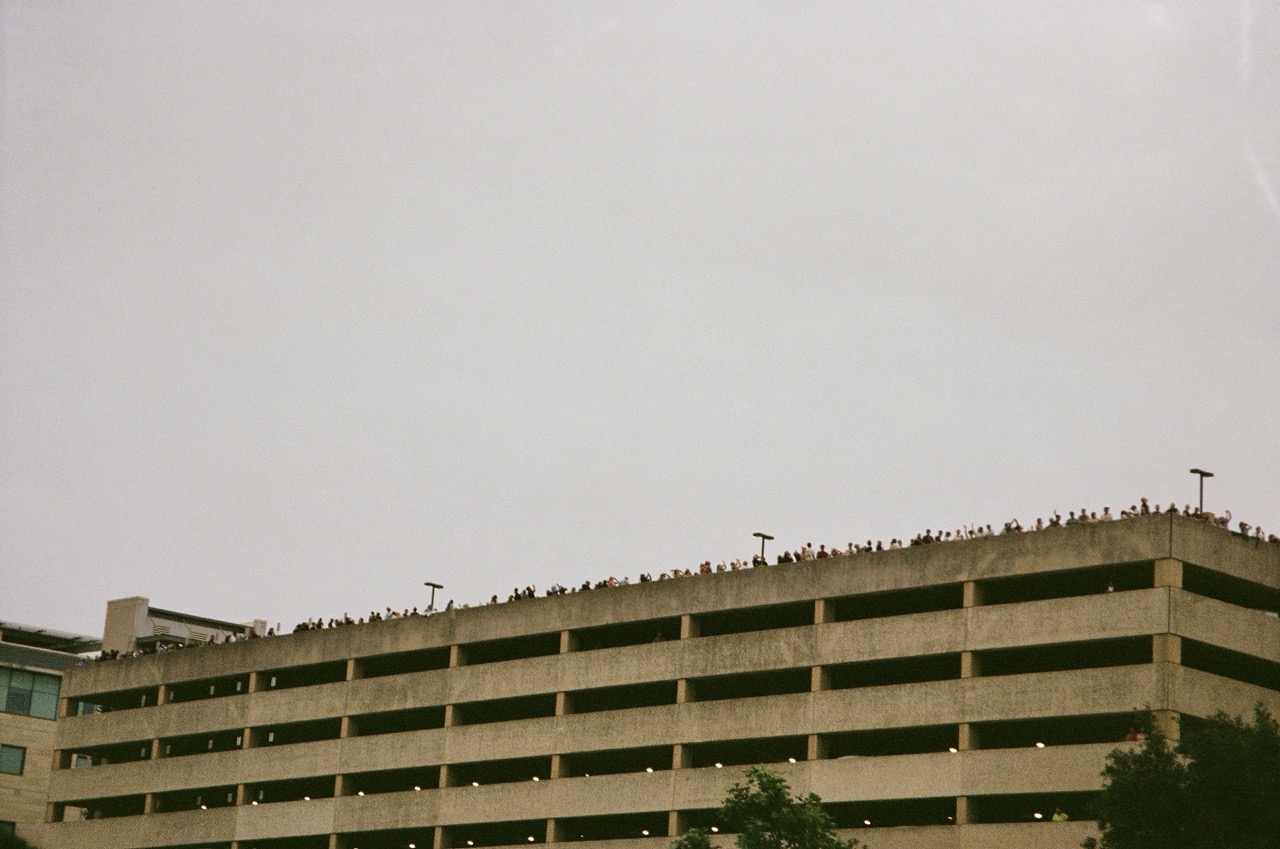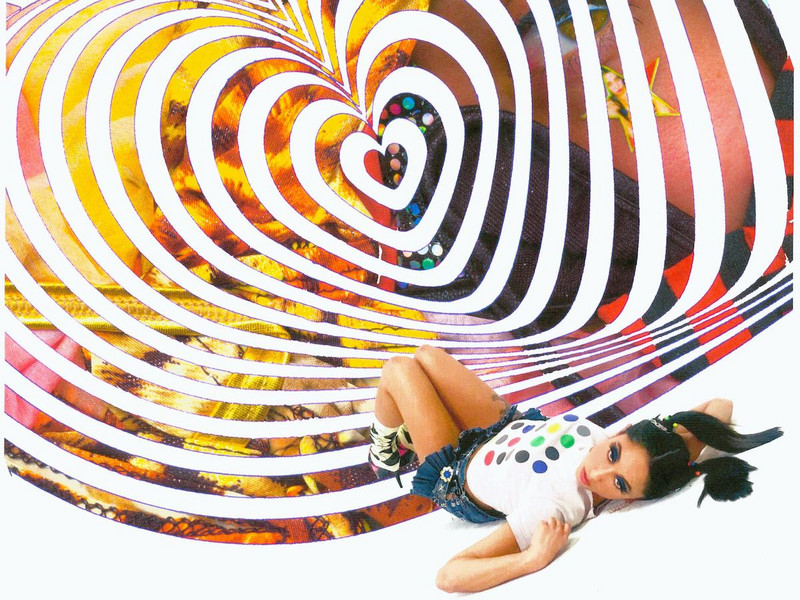Trippie Saves Lives
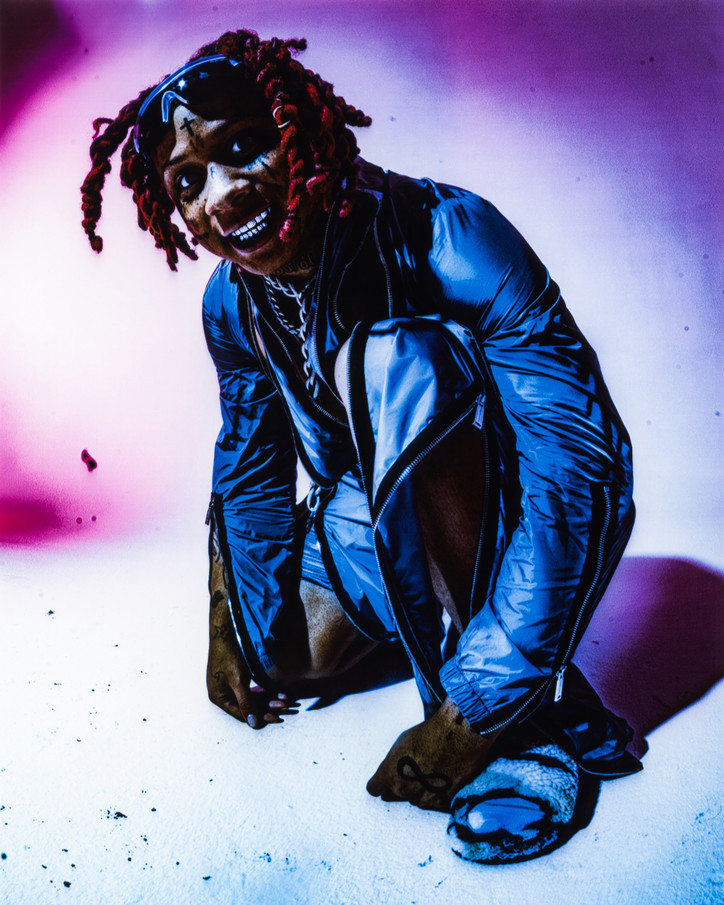
As one of the most visible remaining figures from the Soundcloud decade, Trippie Redd’s eyes light up when he speaks of creating and carrying on a legacy—one he says Juice helped inspire. And he’s doing it on his own terms. Communicating directly and testing new sounds with his 12-million followers on Instagram, the red-dreadlocked singer summons raw emotion as a canvas for any genre and any arrangement—offsetting synths with electric guitars and big beats, hopping from gritty to dreamy to melancholy, alternating between singing and rapping and growling. Not every experiment can be a successful one, but as a master of mood armed with an algorithmic vision of his tapped-in fan base, Trippie Redd isn’t just writing music—he’s absorbing and reflecting culture in real-time.
Now at just 21, Trippie’s become one of the most promising and prolific artists of the moment, with numerous singles, four mixtapes and three studio albums, all of which have garnered a place on the Billboard 200. The most recent—a star-studded 2020 release called Pegasus— marked a decisive return to the signature emo rap ethos first seen on “Love Scars,” with features from the likes of Future, PARTYNEXTDOOR and Lil Wayne. And just earlier this year, he dropped a deluxe cut of the album, NEON SHARK vs Pegasus, produced with help from the legendary pop punk drummer Travis Barker, plus appearances by Machine Gun Kelly and his personal inspiration, the Deftones lead vocalist Chino Moreno.
With yet more music and a merch line on the way, we checked in with Trippie Redd. Here, the singer-rapper shares his thoughts on the Grammys, his dream office/studio, and the impact he hopes to have on his fans.
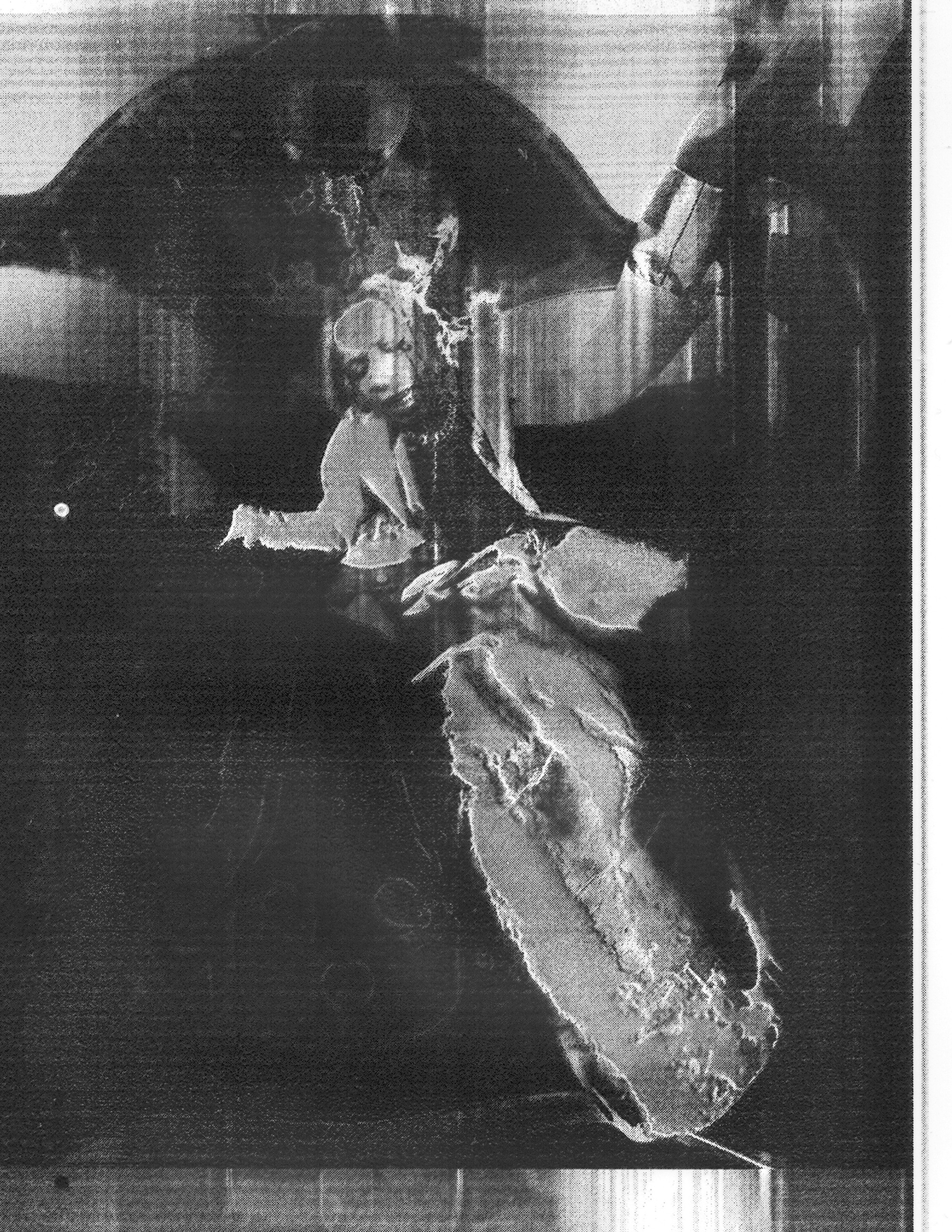
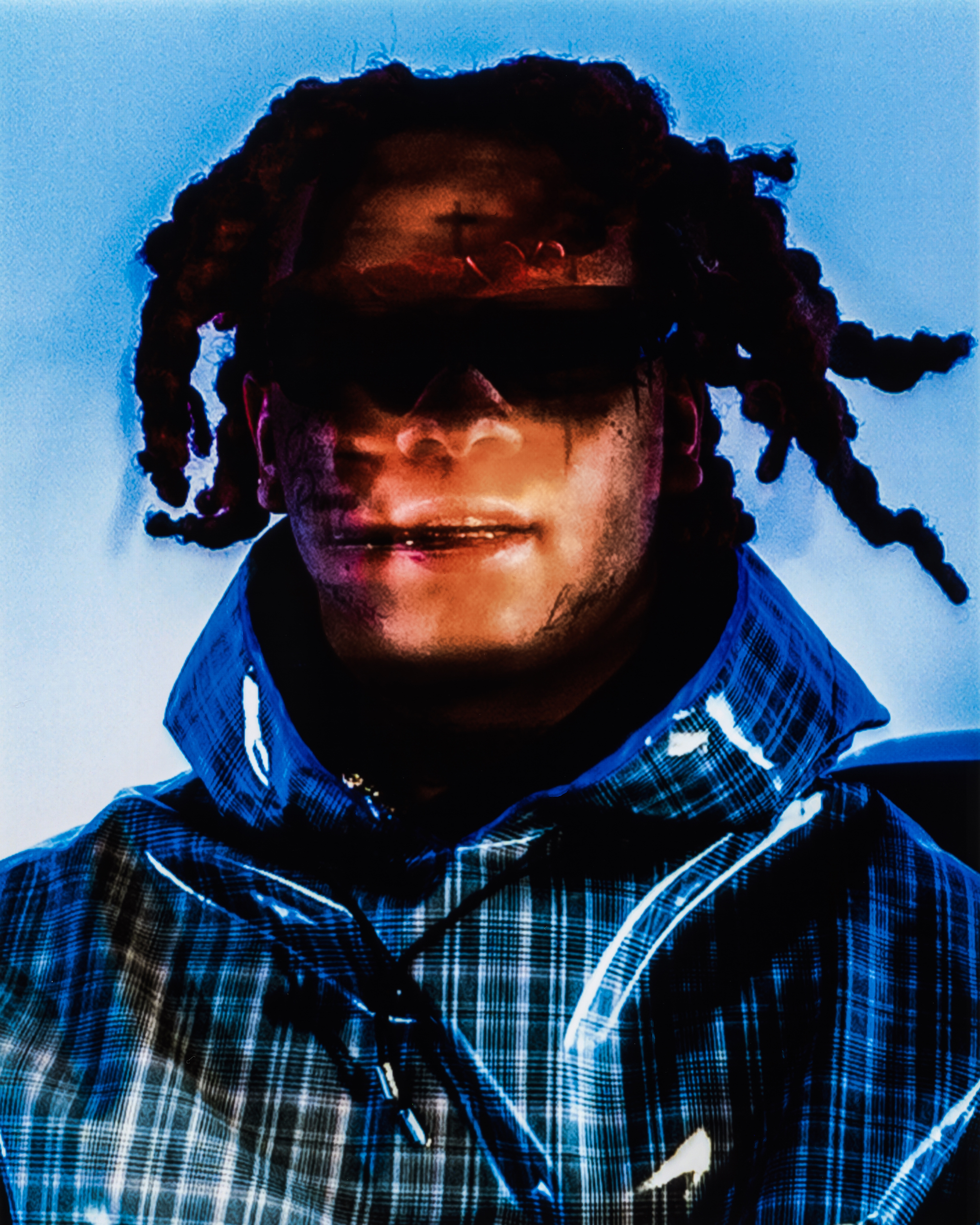
DAN Q. DAO—What’s been the biggest highlight of this year for you?
TRIPPIE REDD—Right now, I feel like I’m still waiting for that moment.
DD—Right, that’s fair. Can you talk about the latest release with Travis Barker, NEON SHARK vs Pegasus. How did that come about?
TR—It was really just me showing [Travis] some of the stuff I used to listen to, like Green Day and [his band] Blink-182, of course. I just showed him a lot, and he sent over some stuff he knew I would like. And I ultimately did.
DD—Any favorites from the album? What have the fans been going for the hardest?
TR—“Pillbreaker,” ft. blackbear & Machine Gun Kelly and “SEA WORLD.” Those are like, my two favorites. A lot of people gravitated towards those two.
DD—The song with Chino Moreno, “Geronimo,” was also exciting, right?
TR—I actually didn’t know that he was getting on the song. Travis did that behind the scenes, and when I found out I was extremely happy. It means a lot to me because he’s one of my vocal inspirations when I do rock. Him and Kurt Cobain.
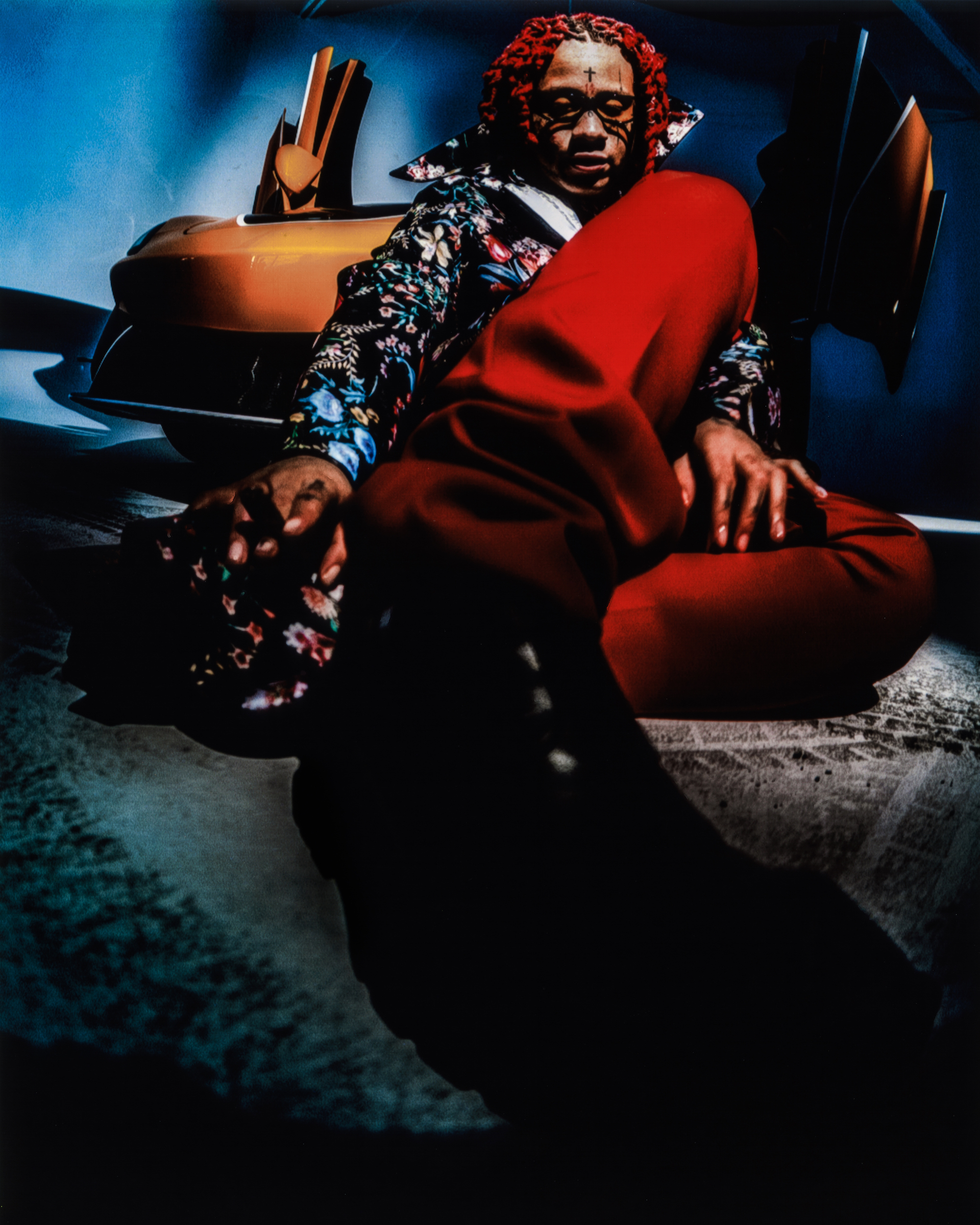
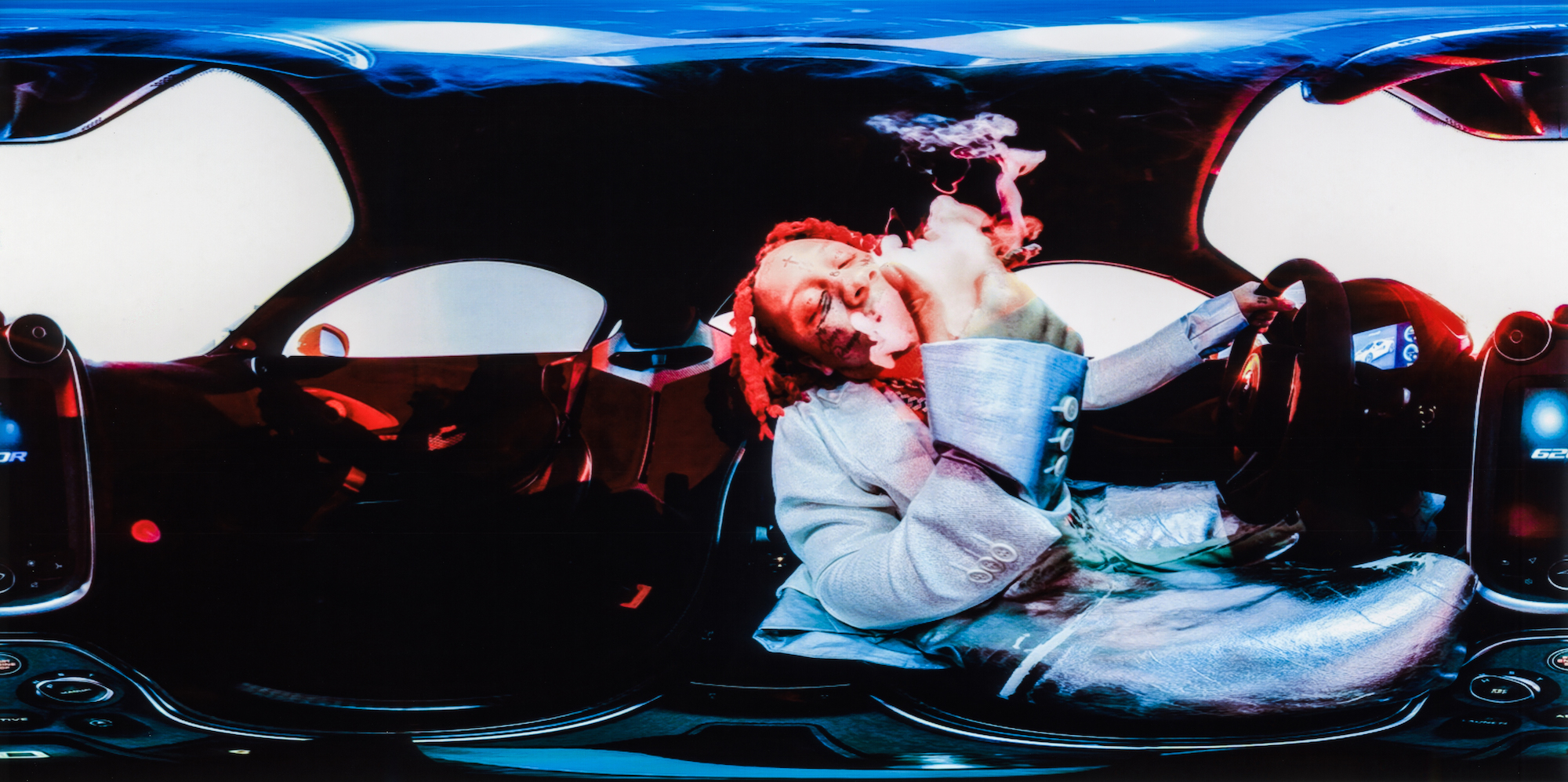
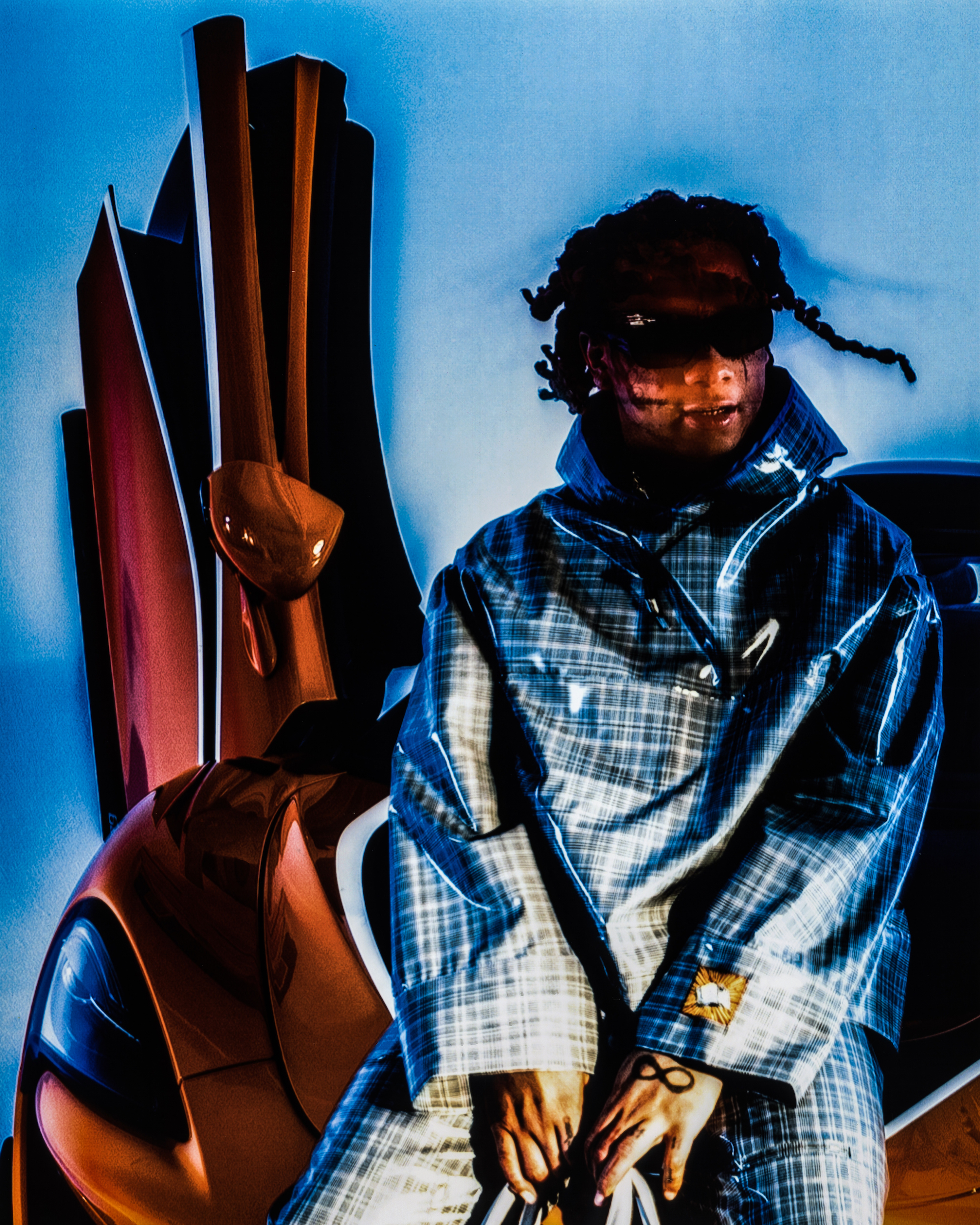
DD—You’ve really become known for that sound, combining different elements of different genres. What is it about rock that attracted you?
TR—Trippie Redd as a whole has always been versatile, so that’s kind of my thing. I do a lot of different genres, and sub-genres. Rock being a big genre, you know, I just had to put my foot into that—I knew I could do it.
DD—Did you go to a lot of rock concerts when you were younger?
TR—Not really, I was just seeing it on the internet. Honestly, I never really went to too many concerts. I’d only been to a Lil Wayne concert, and I went to a concert waiting on Young Thug one time. It took four hours for him to come. As far as rock music, I always just found videos on Youtube. KISS was amazing.
DD—Can you talk a little bit about your process in the studio? Is it straight to business right away, or do you keep it more relaxed?
TR—I don’t have a specific way, but I’ll probably have some blunts ready. That’s about it.
DD—Favorite songs to perform live?
TR—I would say: “Dark Knight Dummo ft. Travis Scott,” “The Grinch,” and “Who Needs Love?” Plus, I’ll give an honorable mention for “Taking a Walk.”
DD—Do you feel that your music influences your fans in a positive way? What is your message?
TR—My fans reach out and say that my music saves their lives. So I feel like I keep people happy. So, I’m going to keep continuing to do that. I like to make other people happy.
DD—When did you realize you had this kind of influence? At what point did you say, ‘I feel like I’ve made it?’
TR—One thing: I’ve always had the attitude that I made it already. But I also sat back and kept quiet and paid homage to a lot of other artists. I sat back and watched the process of other artists. But I realized that I made it when people started tapping into the producers I was working with, and just trying to create the same sounds. So, when I went and created “Love Scars”—when that blew up, I was like, ‘Oh yeah, I got it.’
DD—There’s definitely a lot of your influence in new music. What new artists are you impressed with right now?
TR—I’ve been listening to a lot of Soundcloud. I like Sofaygo—he’s pretty hard. There’s also this kid named ericdoa, his shit’s pretty tough. I’m also rockin’ with Poundside Pop. I love his music—and he’s from Philly.
DD—How do you think the music industry is changing with the internet? Do you think the Grammys are more relevant than what people are engaging with online?
TR—It should be about what people are engaging with themselves rather than what some people are trying to present to you. Secondly, I have no objections to the Grammys. I don’t feel they do anything wrong besides sometimes being unfair to artists that deserve certain things. Like, for example, someone had a song that was hot for two years and all over the charts for 50 weeks, then someone else released a song just two months ago, and the Grammy goes to that person. It doesn’t make sense to me. It doesn’t resonate.
DD—When I found out I was interviewing you, I asked some friends to tell me what songs they wanted to know the backstory for. A lot of people said “Topanga,” so I’d love to know what was going through your head when you made it.
TR—So, A Love Letter to You 3—the beat on that whole project was like, on some futuristic next level. Every beat just sounded big. But on “Topanga,” it was especially big. And the process? Well, I was smoking, you feel me? I was pretty hyper. I was turned up. This is back when I had sharp grills and stuff. So, I was just in a turned-up space. We’d have parties every day at the studio. No COVID so it was different. I did that song in like literally 20 minutes. I just went in there and freestyled and that’s what came out. We had a big sample at the beginning but they didn’t want me to use it because it was like, hella gospel—they said I can’t do that.
DD—Everyone also wanted to know about “Tell Me U Luv Me.”
TR—Me and Juice had been kicking it every day. I ended up pulling up to his house—we were trying to do a project together, and we cut up a couple records that day. But his girl Allie [Lotti] really loved this one. We were supposed to shoot a video together for it, but I ended up having to shoot it by myself. Two friends smoking, vibing, talking, laughing. The best of times.
DD—How would you say Juice changed you as an artist? As a person?
TR—Working with Juice was just like looking in the mirror, in my opinion. We were both on the go. We both did the same shit in the studio. He was just like my brother. I learned a lot from him, just him as a person and also things that he said. And he would always come to me for advice too. He taught me a lot about friendship and being together and creating this big legacy in this world that we could ultimately be at the top of. We definitely had me at high hopes.
DD—That’s the main goal, right? A legacy.
TR—Of course.
DD—How do you define success?
TR—I feel like I’m successful because I do my art. I finish it how I want to. I release it the way I want to. So, that’s why I feel like I’m successful. Money and materialistic things—it doesn’t really matter. It’s the fact that I can just do what I love and live my life. It’s amazing. And do what I want with my time. It’s a blessing.
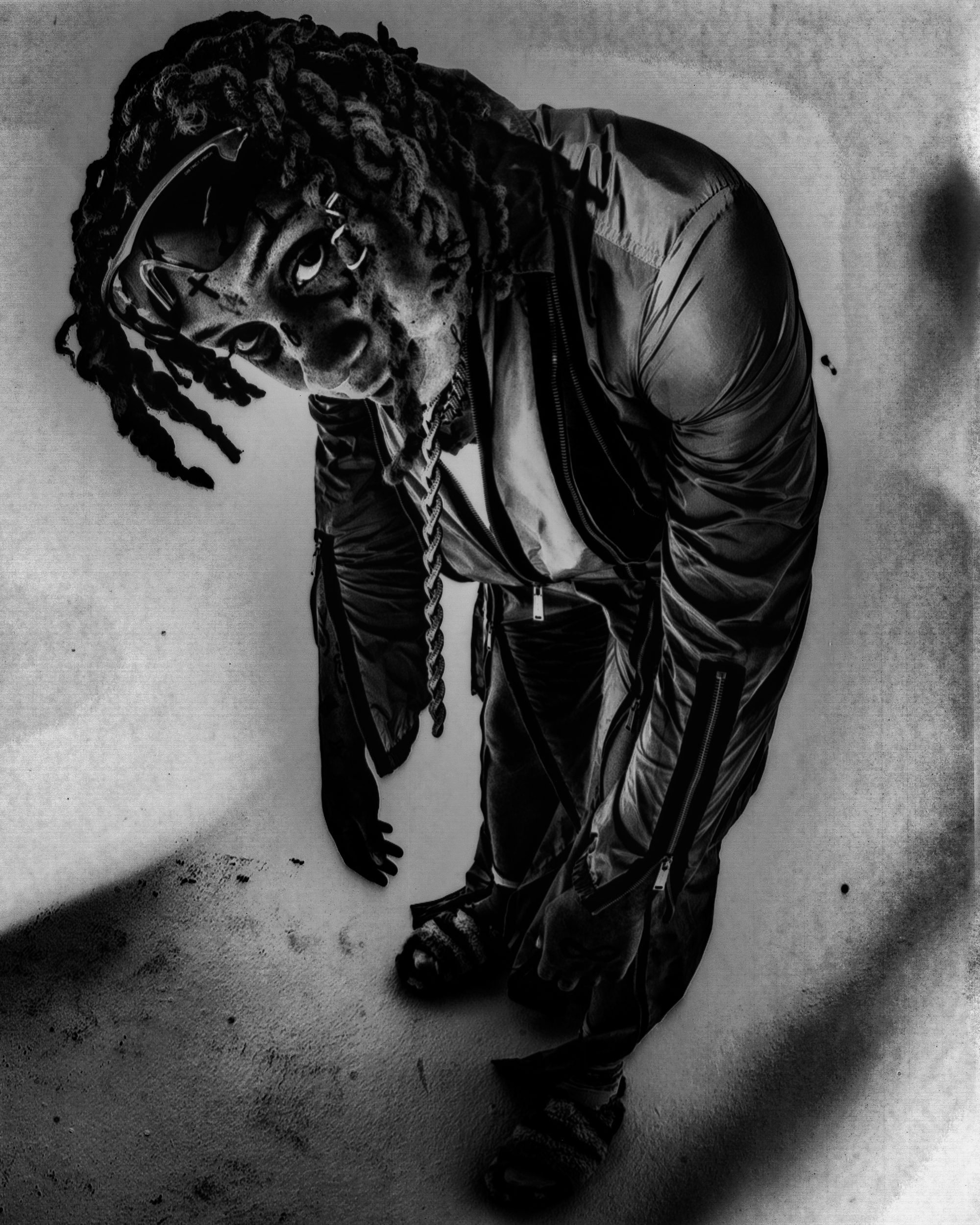
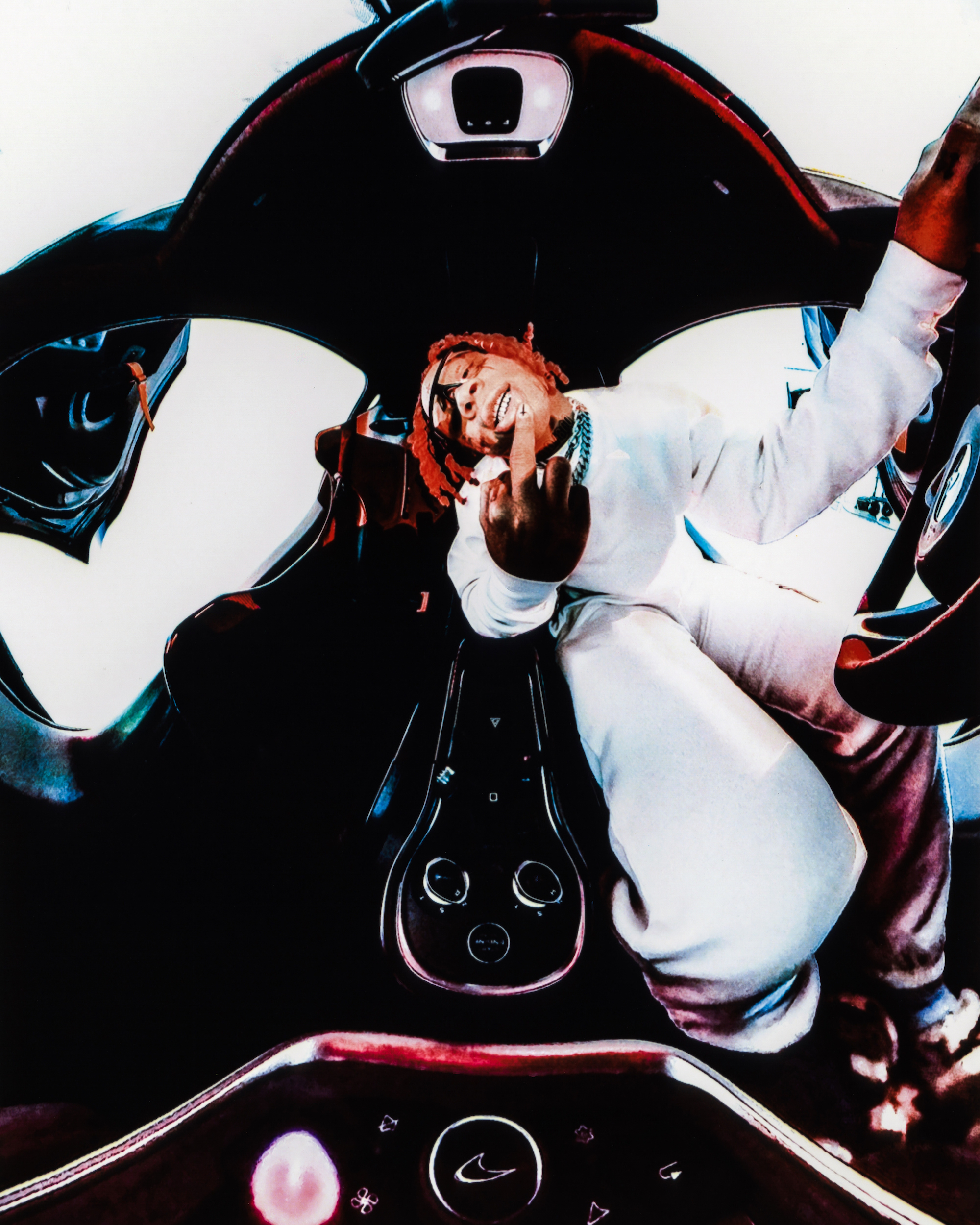
DD—Where do you see yourself in the next 10 years?
TR—Somewhere rich as hell, owning a lot of land, making money in all types of ways. But still doing music somehow, some way.
DD—You have a clothing brand coming out, called Demons At Play. Tell me more.
TR—I don’t want to get too into it, but it’s going to be fire. High-end fashion hipster shit. Hipster high fashion.
DD—What do you do when you’re not working?
TR—Travel and go to theme parks. If it was open right now, I’d be at Six Flags.
Pre-order office magazine issue 14 here.
